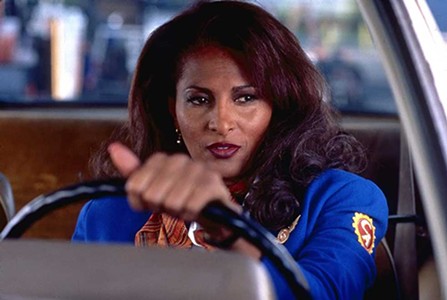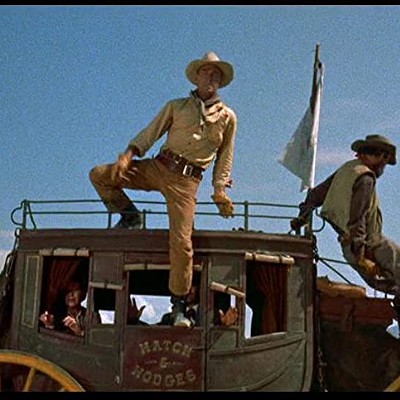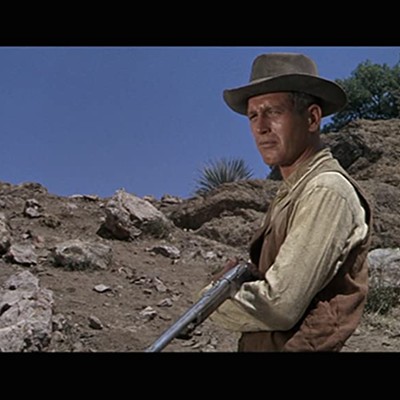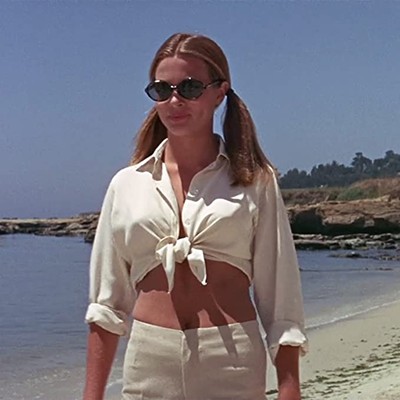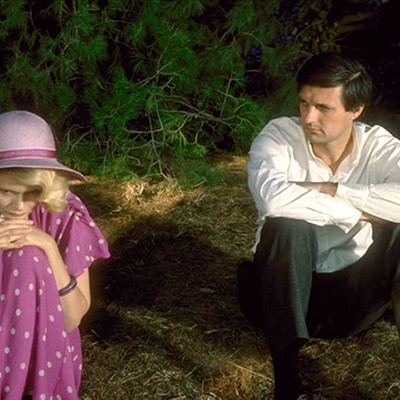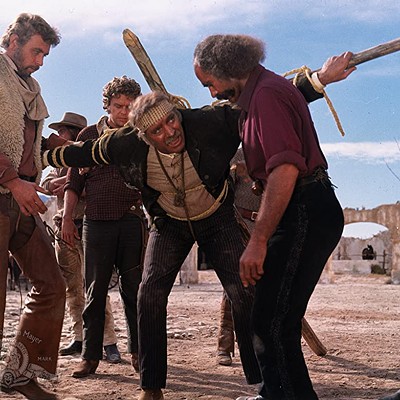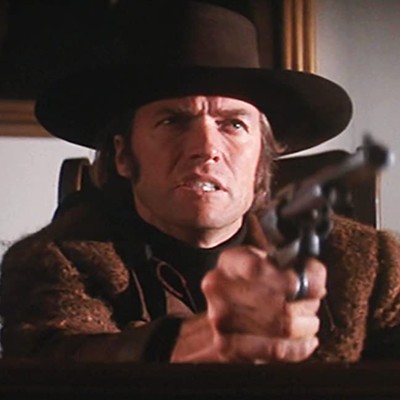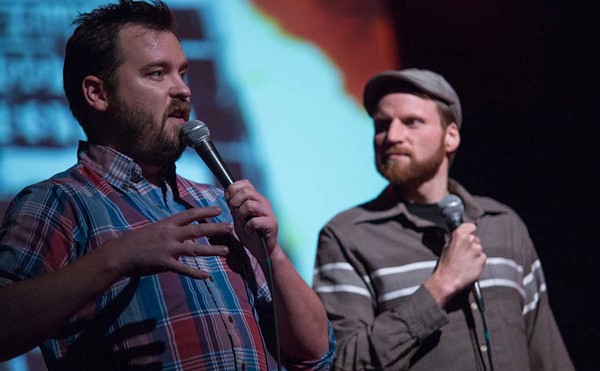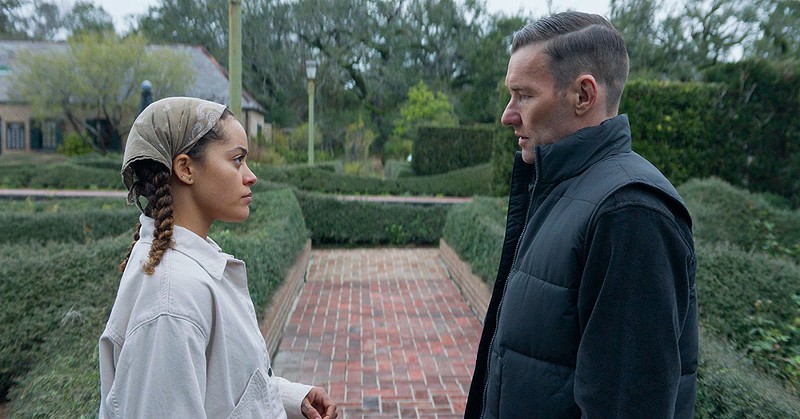
Although one of the world’s most accomplished filmmakers, with a remarkably deep and surprisingly diverse body of work stretching back 50 years, Grand Rapids-born Paul Schrader has seldom received the adulation lavished on such contemporaries (and past collaborators) as Martin Scorsese, Steven Spielberg, or even the more critically divisive Brian De Palma. Certainly, he’s respected — especially for his screenwriting on such now-canonical films as Scorsese’s Taxi Driver and Raging Bull — but Schrader never quite managed a major commercial breakthrough, with American Gigolo (1980) the long-ago exception, and for most of the past two decades, he’s struggled mightily to find viewers, toiling on an uneven mix of under-seen work-for-hire films and more personal projects that were either mishandled by distributors or mangled by producers.
Schrader’s admirably uncompromising artistic vision no doubt accounts for much of his difficulty winning a mass audience. Although occasionally enlivened by an ironic black humor, his works feature a self-conscious seriousness and a grim, relentlessly bleak worldview. As I wrote nearly 30 years ago about Witch Hunt — one of his undeniable misfires — “even when working within popular genres, Schrader brings an art-house sensibility to bear and always remains at a critical remove. Chilly and abstract, his movies — especially those he both writes and directs — are weirdly calm intellectual meditations on agitated emotional states: Schrader wants to cut loose — he’s drawn to violence, fascinated by dark forces and underground men — but he’s too smart, too cautious, too restrained to forfeit control.”
That description of Schrader’s films remains entirely accurate today, and his new Master Gardener features another of his exquisitely agonized heroes. Like Taxi Driver’s Travis Bickle — and the thematic variations found in American Gigolo, Light Sleeper, First Reformed, and Card Counter — Narvel Roth (Joel Edgerton) qualifies as one of “God’s lonely men,” largely isolated from “normal” society and desperately questing after purpose and redemption.
The chief horticulturist at Gracewood Gardens, a sprawling estate presided over by the imperious Norma Haverhill (a superb Sigourney Weaver), Narvel presents a placid surface — he’s unfailingly calm, measured, precise — but he’s roiling underneath. A former enforcer for a cadre of neo-Nazis — his torso still bristling with tattoos of swastikas and white-power sigils — Narvel turned state’s evidence and found refuge at Gracewood as part of the federal Witness Protection Program. The careful order of the garden he now tends contrasts starkly with the chaos of his previous life, which is purposely communicated with telegraphic brevity: memories that erupt in periodic flashes that never fully illuminate Narvel’s backstory. Despite voice-overs that share excerpts from his journal — a device nicked from French filmmaker Robert Bresson’s Diary of a Country Priest but now Schrader’s unmistakable signature — Narvel keeps his true feelings hidden, and we’re never quite confident that he’s expunged his racism. Given the film’s Southern setting, William Faulkner’s famed quote seems particularly apt: “The past is never dead. It’s not even past.”
Having progressed from untutored apprentice to master gardener, Narvel appears to have found a measure of contentment in his circumscribed existence, but the arrival of Maya (Quintessa Swindell), Mrs. Haverhill’s great-niece, upsets the delicate balance at Gracewood. Norma describes the biracial Maya as adrift and troubled (“lifestyle choices, I believe they call them”). Because the young woman’s mother has died — from “tit cancer,” in Norma’s oddly blunt, unsettling words — Norma has decided to offer some impersonal noblesse oblige: She will pay Maya minimum wage while Narvel shepherds the wayward lamb by teaching her the gardening profession.
What Norma fails to anticipate, however, is a slowly blossoming attraction between Maya and Narvel, who serves not only as his employer’s gardener but also her on-demand lover. When Narvel tenderly comforts Maya after she’s beaten by her mother’s drug-dealing boyfriend, a jealous Norma impulsively expels the odd couple from Eden.
At this point, the simmering tensions present from the film’s start rise slowly to a boil, and Master Gardener begins to deliberately echo elements of Taxi Driver: Just as Travis eventually “rescues” Iris from her pimp in an apocalyptic gun battle, Narvel seems inevitably headed to a similar conflagration as he attempts to free Maya from the depredations of the dealer R.G. (Jared Bankens). But Schrader for once opts for hope over despair, blessedly pulling back from the abyss and allowing Narvel to find redemption through mutual love rather than expiation through blood sacrifice.
Concluding an unofficial trilogy with the well-received First Reformed and Card Counter, Master Gardener on many levels seems a grand summation, a capstone to an enviable career. But the 76-year-old Schrader already has multiple scripts at the ready and firm plans to shoot an adaptation of Russell Banks’ novel Foregone with his American Gigolo star Richard Gere. Age hasn’t diminished Schrader’s skills, and there are sequences in Master Gardener that rival those in his masterpiece, Mishima. In particular, I was transported by an eruption of Lynchian surreality after Narvel and Maya finally make love: Driving headlong down a darkened highway, the couple finds flowers efflorescing in absurd, delirious abundance on either side, and they lean out their windows and howl with ecstatic delight.
Master Gardener caps an exhilarating run of recent triumphs, and if Schrader wants to climb back behind the wheel for another film, I’ll happily take that ride again.
Subscribe to Metro Times newsletters.
Follow us: Google News | NewsBreak | Reddit | Instagram | Facebook | Twitter

